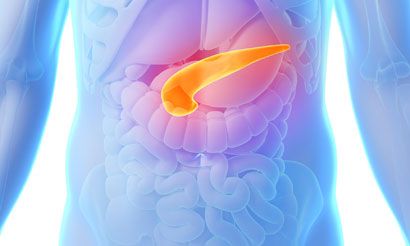Whole-Genome Sequencing Identifies New Targets in Pancreatic Cancer
A research team led by investigators at the University of Texas Southwestern Medical Center in Dallas has published a study in Nature Communications identifying several new genetic mutations in pancreatic ductal adenocarcinoma.
A research team led by investigators at the University of Texas Southwestern Medical Center in Dallas has published a study in Nature Communications identifying several new genetic mutations in pancreatic ductal adenocarcinoma.

A research team led by investigators at the University of Texas Southwestern Medical Center in Dallas has published a study inNature Communicationsidentifying several new genetic mutations in pancreatic ductal adenocarcinoma (PDA).1
Pancreatic ductal adenocarcinoma is the predominate subtype of pancreatic cancer, accounting for more than 90% of cases.1Historically, the complexity of PDA has hindered efforts to unravel its etiology, assess prognosis for individual patients, and develop effective targeted therapies to improve the dismal outcomes associated with this disease. “We identified a wealth of genetic diversity, including multiple mutated genes that were previously unknown to pancreatic canceran important step in gaining a better understanding of this difficult and particularly deadly disease,” said lead author Agnieszka Witkiewicz, MD, associate professor of pathology, Harold C. Simmons Comprehensive Cancer Center, UT Southwestern, in a press release.2
Pancreatic cancer is the fourth leading cause of cancer-related deaths in men and women.3Approximately 49,000 cases of pancreatic cancer will be diagnosed in 2015. The lack of a reliable screening method to detect pancreatic cancer means more than half of cases (53%) will be diagnosed after the cancer has metastasized. As a result, only 20% of patients are candidates for surgical resection; standard treatment for unresectable disease is systemic chemotherapy. After surgery or chemotherapy, patients invariably relapse. Patients with pancreatic cancer have a poor prognosiseven those whose tumor was still localized at diagnosis. Overall, only 28% of patients survive 1 year after diagnosis, and only 7% survive 5 years.3Although targeted treatments have been approved for pancreatic neuroendocrine tumors, which make up about 5% of pancreatic cancer diagnoses, no targeted therapies are available for PDA.
The main obstacle to obtaining genetic information about PDA is the fact that tissue specimens from PDA tumors typically contain a mix of tumor cells and normal cells, which makes it difficult for scientists to identify genetic defects amenable to treatment. To improve the yield of tumor cells, the research team used needle dissection on PDA specimens taken from 109 patients who underwent surgical resection. Then they performed whole-exome sequencing, which revealed a genetic diversity similar to that observed in other solid tumors.
The researchers confirmed the existence of some previously known oncogenic drivers and identified several new ones. Some of the newly discovered genetic mutations, such asRB1andCCND1, occurred relatively infrequently; whereas others, likeRNF43,AXIN1, and mutations targeting the SWI/SNF pathway, were more common. Therapies targeting some of the genetic alterations the researchers found in the PDA samples are already approved or under development for other types of cancer. For example, they foundBRAFandPIK3CAmutations in PDA wild-type KRAS tumors. ABRAF V600E-positive cell line of PDA they cultured proved just as susceptible to treatment with the FDA-approved BRAF inhibitor vemurafenib as a melanoma cell line used as a comparator. In addition to serving as therapeutic targets, the genetic aberrations they discovered may offer new insights on etiology and prognosis. Data associated pancreatic tumors with greater chromosomal instability with worse prognosis. Another important finding was a correlation between Myc amplification, adenosquamous histology, and poor prognosis. Smoking status proved to be a driver and prognostic factor in the PDA cases they examined. The mutational profile of smokers with PDA was similar to the mutational profile reported for other smoking-related cancers. In addition, smokers with PDA survived less than half as long as nonsmokers in the study.
“I am considerably more optimistic of the utility of a genetically targeted therapy for pancreatic cancer today than when we began this work,” said senior author Erik Knudsen, PhD, professor of pathology, Simmons Cancer Center, in a press release.2He added that much more research is needed, however. Witkiewicz cautioned that while the discoveries are exciting, “Most pancreatic cancers exhibit multiple genetic alterations; therefore, it is likely that combination approaches targeting multiple pathways will be required for effective disease control.”2
References
- Witkiewicz AK, McMillan EA, Balaji U. Whole-exome sequencing of pancreatic cancer defines genetic diversity and therapeutic targets.Nat Commun. 2015;6:6744.
- Researchers lead collaborative charge to uncover genetic diversity of pancreatic cancer [press release]. http://www.utsouthwestern.edu/newsroom/news-releases/year-2015/april/pancreatic-cancer-knudsen.html. Accessed April 13, 2015.
- Siegel RL, Miller KD, Jemal A. Cancer statistics, 2015.CA Cancer J Clin. 2015;65:5-29.
Checkpoint Inhibitors Deliver Longer OS in PPP2R1A-Mutated Endometrial Cancer vs Wild-Type Disease
April 7th 2025Dual checkpoint inhibitors led to longer overall survival in patients with high-risk endometrial cancer who displayed inactivating PPP2R1A mutations vs patients with wild-type PPP2R1A.
Read More









